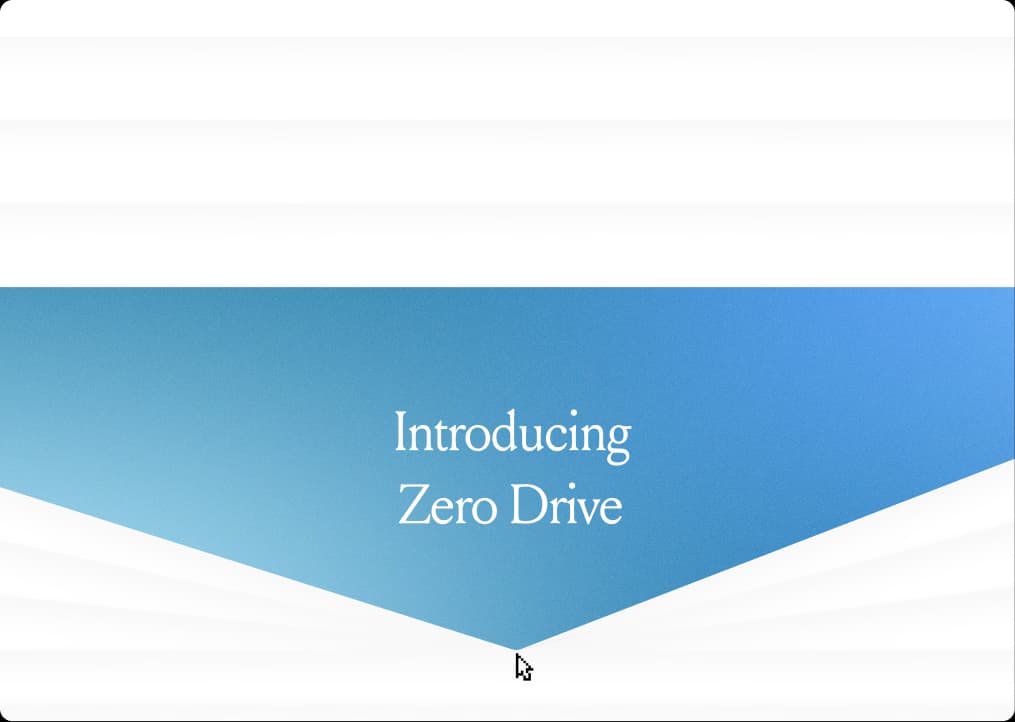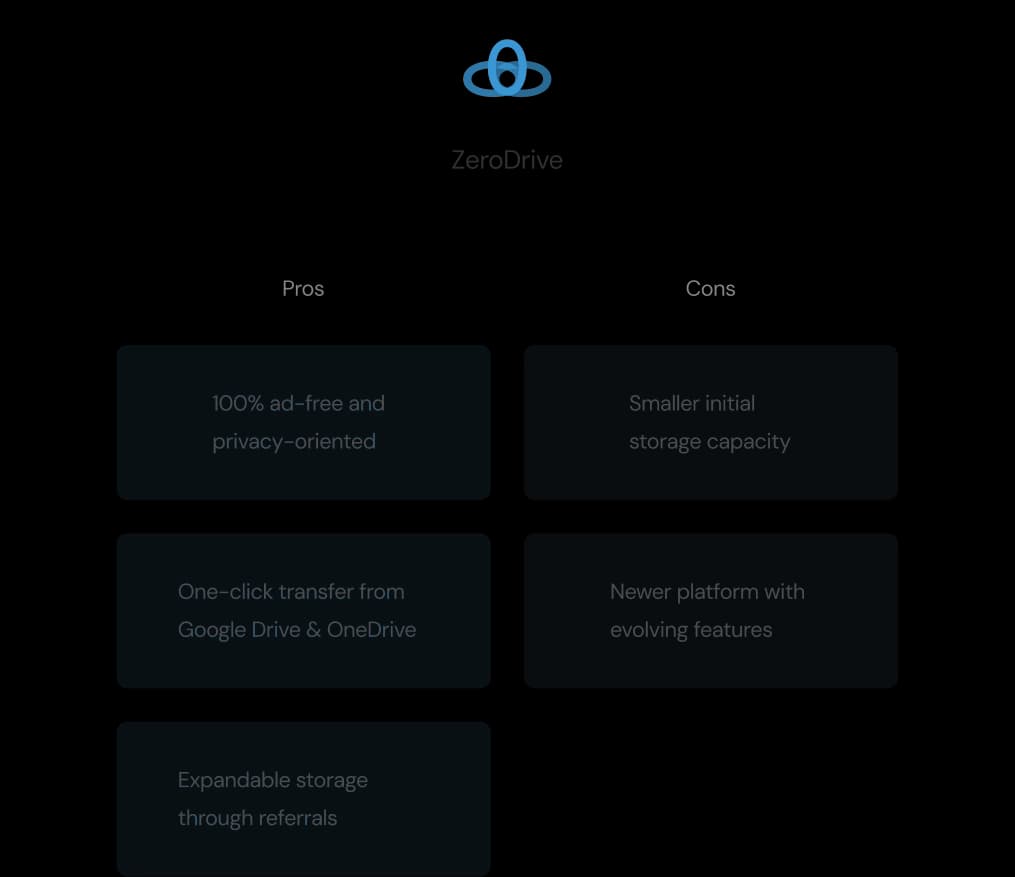TeraBox vs ZeroDrive: Which Cloud Storage Platform Should You Trust in 2025?
Discover the key differences between TeraBox and ZeroDrive. Compare privacy, usability, speed, and data protection to find the most reliable cloud storage platform for 2025.
.avif&w=3840&q=75)
In today's fast-paced digital world, cloud storage isn't just a backup solution, it's a daily necessity. From safeguarding personal memories to managing professional files, a secure and seamless cloud experience can make your digital life effortless. Two platforms gaining attention in 2025 are TeraBox and ZeroDrive. While both help users store and manage files in the cloud, they differ significantly in their focus, approach, and features. Let's explore how these platforms compare and which one might better suit your needs.
What is TeraBox?
TeraBox, developed by Flextech Inc., is one of the most recognized free cloud storage services. It offers a massive 1 TB (1024 GB) of free space for users to back up photos, videos, and documents with ease. It features apps for Windows, macOS, Android, and iOS, and supports link sharing, media streaming, and large file uploads. However, the free plan comes with ads, slower transfer speeds, and limited privacy settings, which may concern users who prioritize data security. TeraBox's huge storage is a clear draw for heavy users, but its privacy trade-offs have pushed many to explore safer alternatives.
Introducing ZeroDrive
ZeroDrive by FuturixAI is an ad-free, privacy-focused cloud storage platform designed for users who want a clean, secure, and transparent experience. It provides free cloud storage with no ads or hidden charges, and users can expand their capacity through a referral system. The platform emphasizes complete data privacy and fast, reliable file access without tracking or intrusive advertising. One of its standout features is the one-click import tool, which allows users to transfer data directly from Google Drive or OneDrive. This makes it easy to consolidate or free up space in existing accounts with just a few clicks. At its core, ZeroDrive focuses on simplicity, speed, and security — making it ideal for anyone who values privacy and a clutter-free experience.

Which One Should You Choose?
The right choice depends on your priorities and workflow. If you want maximum free storage space and are comfortable with a few ads or slower speeds, TeraBox delivers impressive capacity and straightforward file management. It's great for users who need room for large backups or multimedia content. If you prefer a privacy-first, ad-free experience that emphasizes speed, simplicity, and data protection, ZeroDrive may be a better fit. Its one-click transfer tool and clean interface make it a strong option for users who care more about control and convenience than sheer storage size.

Security and Privacy
Security is where these two services take different paths. TeraBox offers standard encryption but lacks advanced privacy features such as zero-knowledge protection. Its ad-supported model may also raise concerns for users cautious about data handling. ZeroDrive, meanwhile, is designed around data privacy and transparency. It doesn't rely on ads or data sharing, and files remain fully protected under its privacy-first framework. The platform's focus on trust and user control makes it appealing to those seeking a more secure digital environment.
.avif&w=3840&q=75)
Pros & Cons


Final Verdict
Both TeraBox and ZeroDrive serve distinct purposes and cater to different types of users. If you're after maximum storage space and don't mind occasional ads, TeraBox remains a solid, dependable option for storing large volumes of data. It's simple, functional, and widely accessible across devices. If you value data privacy, an ad-free experience, and seamless file management, ZeroDrive offers a more modern approach to cloud storage. Its one-click transfer feature, privacy commitment, and clutter-free interface make it an excellent alternative for users seeking security and control.